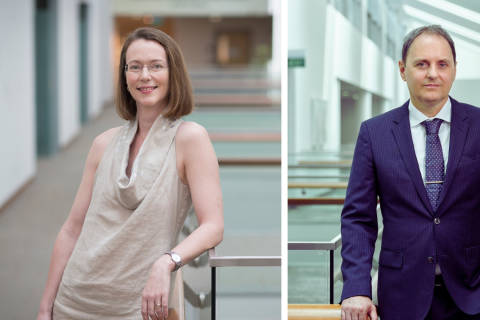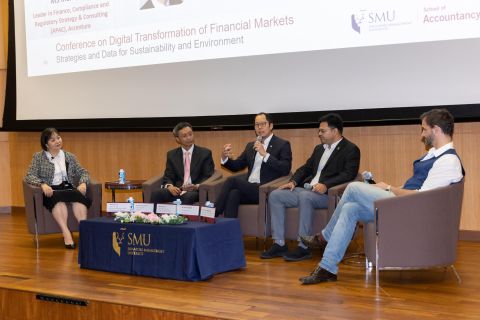
By Stuart Pallister
SMU Office of Research & Tech Transfer – Should it come as a surprise that if you trust someone, they will be regarded as credible? Probably not, but how do you test that hypothesis empirically?
That was the challenge faced by researchers from Singapore Management University and INSEAD business school when they delved into companies’ share buyback announcements to find out whether firms run by trustworthy CEOs produce higher returns.
Share repurchase programmes are controversial, as the researchers point out in their article, Managerial trustworthiness and buybacks in the Journal of Financial and Quantitative Analysis. ‘We focus on buybacks and trust in this paper, because buybacks are often regarded as one of the most controversial corporate decisions.’
The article goes on to say that ‘not all share buybacks are created equal.’ Some companies choose to use spare cash to buy back undervalued stock in order to inflate their share price and earnings per share (EPS). Others may do so to block a potential takeover. Buybacks can also signal a lack of investment opportunities.
As the paper points out, ‘the challenge for outside investors is to judge whether a specific buyback announcement is driven by a genuine desire to increase shareholder value.’
The paper came about following a conversation between SMU Associate Professor of Accounting Sterling Huang and INSEAD Professor of Finance Theo Vermaelen. Professor Huang told the Office of Research & Tech Transfer that he and Professor Vermaelen were “having a casual catch-up. I was working on a trust-related area and he was working on buybacks. So that’s when we decided to work together and write a paper about trust and buybacks.”
Their paper, co-written with INSEAD co-researcher Kaisa Snellman, starts with the premise that ‘although managers have a fiduciary responsibility to maximise shareholder value, the basic assumption of the agency literature in economics and finance is that managers cannot be trusted.’
So how do you measure trust? Professor Huang concedes this is difficult to pin down for several reasons. “First, there’s a lack of empirical measure of trust. One innovation we had in the paper is to rely on a survey-based method that allows us to empirically measure and quantify the trust level. Second, we want to understand the significance of trust by looking at the incremental impact on a stock’s return. So when managers are trustworthy, can we put a dollar value on the trust value?”
The researchers based their study on a sample of buyback announcements made by US firms between 1992 and 2016. “The literature has different constructs of trust and we picked a particular angle using survey-based measures. There’s always a question as to whether the survey-based method really captures trust in a manager or trust in general, so that’s why we try to measure trust using different sorts of data and constructs.
“We have employee-based trust and we also have linguistic-based measures to extract the trustworthy components from managers’ conference call scripts.” As each measure may have advantages and disadvantages, Professor Huang added, “our evidence is quite consistent across all three measures.”
Findings
The study’s main finding is that ‘firms that announce share repurchase programs and are run by trustworthy CEOs experience significantly higher long-term excess returns.’ Professor Huang says this is not only statistically significant but is also important economically. “On average trustworthy managers engaging in buyback activities are earning 2.4 percent a year more than untrustworthy managers engaging in similar activities.” That may not sound a lot, but over the course of, say, a five-year buyback programme, “that’s quite a big difference.”
While maximising shareholder value is still central to their work, both researchers are now working on another paper looking at buybacks and ESG (environmental, social, and governance) investing.
“If you want to protect the environment and invest in employees, it’s costly and this is cash that could be used for buybacks for example. So, the question we’re looking at is, ‘To what extent will pro-ESG firms exhibit very different buyback behaviours?’ Maybe they’re less likely to engage in buybacks because, say, they want to save their cash to meet the demands of other stakeholders. And we’re trying to test this out in our data.”
Back to Research@SMU November 2022 Issue
Want to see more of SMU Research?
Sign up for Research@SMU e-newslettter to know more about our research and research-related events!
If you would like to remove yourself from all our mailing list, please visit https://eservices.smu.edu.sg/internet/DNC/Default.aspx

